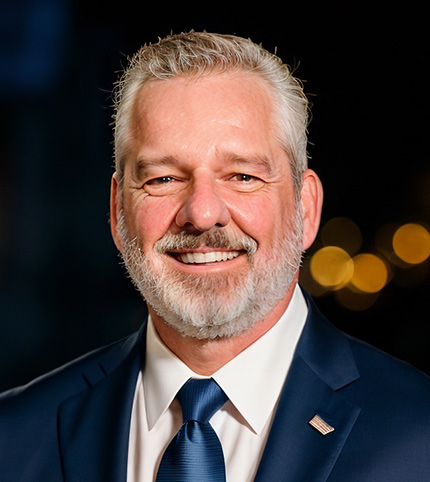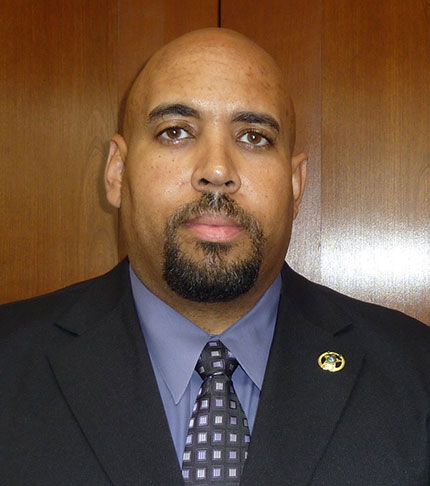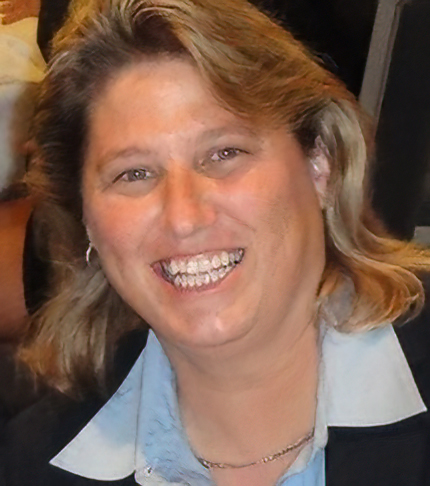The Critical Difference™
The Guardian SafeCommunities Program®
A connected community is a protected community™
The Guardian SafeCommunities Program® was launched in 2012 to provide master planned communities with a comprehensive and multi-dimensional approach to crime prevention. As a public safety strategy operating under the authority of a master association, the Guardian SafeCommunities Program® shifts security and community safety away from sole reliance on government officials and public police agencies, and transfers this responsibility equally among all community members or “stakeholders.” Thus guiding and empowering the community to assume ownership of its public safety.
In the Guardian SafeCommunities Program®, public safety in the master planned community emphasizes a preventative approach through networking and anchoring of community members using diverse public and private safety tools, social networks, environmental design, and other proactive crime prevention strategies. The results of this approach are multi-fold:
- Reduced crime and victimization
- Enhanced social capital investment and community cooperation
- Improved quality of life
- Improved branding and public perceptions
- Increased property values
The Guardian SafeCommunities Program® A comprehensive and integrated strategy for crime prevention in master planned community environments
Crime, by nature, is a social problem. Classic crime prevention and security strategies in master planned communities can reduce vulnerability to criminal activity, but rarely impact the underlying factors that contribute to the cycle of crime. Likewise, today’s 911-focused policing model is largely reactive in approach with little influence on the complex web of conditions contributing to social disorder, criminal activity, and negative community perceptions.
Unlike reactive policing and security models that only address one dimension of the problem, The Guardian SafeCommunities Program® is designed to holistically address the full spectrum of social dynamics contributing to crime, social disorder, and community quality of life.
At the core of The Guardian SafeCommunities Program® is the Community and Character Based Protection Initiative™ (CCBPI). CCBPI considers the community as a whole, not just as a random collection of individual parts or even as a sum of parts. It recognizes that all elements of the community interact to give the community its particular “personality.” Collectively, community residents, law enforcement and public agencies, local businesses, residential property managers, all interact to shape the master planned community. CCBPI focuses on building relationships between these stakeholders and coordinating action toward the common purpose of reducing environmental and social conditions that contribute to crime.
Successful implementation of CCBPI involves parallel implementation of Preventative Interaction and Proactive Intervention strategies and methods.
Preventative Interaction
Preventative Interaction lays the foundation for community growth and long-term crime reduction through a variety of techniques designed to specifically engender social capital—the personal investment by community members in the betterment of their own community. Preventative Interaction centers on establishing trust, relationships, and connection among community members to empower the community and strengthen its social capital. High levels of trust and citizen participation operate through a variety of mechanisms to produce socially desirable outcomes. The mechanisms, circumstances, and outcomes vary; but in general, social capitol has many features to help people translate aspirations into realities.
Strong social capitol within a community ultimately equates to lower crime rates. The more interaction and networking that occur within a community, the less the possibility of victimization exists. In essence, the better community members know each other, the more they are apt to care for and watch over each other and the less likely they are to victimize one another.
Preventative Interaction approaches lay the foundation of trust that is critical to a community’s wellbeing. It involves measures designed to yield lasting results by building and maintaining social networks that strengthen community fiber and boost social capital investment.
Proactive Intervention
Criminologists universally agree that the key to making long-term reductions in crime is rehabilitation and stabilization of the afflicted community. Over the past 40 years, numerous programs and models for crime prevention through community building have been developed. However, to date, the majority of these community-based programs have proven unsuccessful in achieving substantial or lasting results. The poor success of these initiatives can often be traced to a single issue—failure to remove the existing conditions that perpetuate the cycle of crime.
Proactive Intervention is the process of identifying and neutralizing influences within a community that deteriorate its fiber and social capital. Criminal activities that contribute to fear in the community are surgically targeted in cooperation with law enforcement. Nuisance behaviors which contribute to criminal confidence (e.g., noise complaints, loitering, vagrancy, outdoor alcohol and drug use, etc.) are managed and minimized wherever possible. And problematic physical conditions (e.g., lighting, landscaping, etc.) are addressed to reduce opportunity for crime and reinforce the appearance of an orderly environment.
The strategic benefits of Proactive Intervention are two-fold. First, decreased criminal presence. Second (and just as important), reduced fear of victimization. This clears the way for Preventative Interaction to take root.
The Guardian SafeCommunities Program® Program Elements & Initiatives
Community Assessments
Accurate assessment and monitoring of criminal activity, community perceptions, and conditions contributing to social and physical disorder is crucial for purposes of planning, prioritization, and measuring the effectiveness of the program. During the initial planning stage, a comprehensive assessment is conducted focusing on crime statistics, geospatial crime mapping, and environmental conditions with potential influence on criminal behavior. This initial assessment also includes a detailed survey of the community designed to identify priority concerns, unreported problems, opinions about community leadership and authorities, social disorders contributing to crime and fear by residents, and other issues that cannot be gauged from crime statistics.
After the program is underway, this assessment process continues in an ongoing basis to identify emerging problems and facilitate refinement of the program’s activities.
Crime Free Leasing Standards & Crime Free Multi-Housing
As a component of the Guardian SafeCommunities Program®, multi-family properties are actively encouraged and assisted in obtaining Crime Free Multi-Housing certification. Although the requirements for Crime Free Multi-Housing certification vary throughout the nation, program support often entails activities such as training property managers in crime prevention and leasing matters, conducting Crime Prevention Through Environmental Design (CPTED) assessments of properties, and assisting property managers in navigating the certification process.
New Resident Contacts
Although formal committees and partnership associations are useful for coordinating activities between organizations, the true key to cultivating social capital and community cohesion is interpersonal networking within the community. As one example of this in the Guardian SafeCommunities Program®, systems are emplaced to ensure that new residents are personally welcomed into the community and informed about community activities and services, the master planned community’s unique public safety program, and community contacts.
Meet the Bus
Another example of strategic, yet informal networking in the Guardian SafeCommunities methodology is the “Meet the Bus” program. Each school day, designated officers or public safety committee members greet school buses at bus stops as a means of building relationships with youth and parents through positive interaction. Other related youth activities include joining kids in sports (e.g., football, frisbee, etc.), homework assistance, and listening and informally coaching youth with personal issues.
Victim Re-Contacts
To assist crime victims in maintaining trust and confidence in the community, systems and procedures are designed to ensure that victims of crimes are personally visited and supported by members of the public safety department. Victim re-contact activities not only demonstrate care for the welfare of community residents, but provide valuable opportunity to gather information about the circumstances of crimes to support improved prevention planning.
“Walk-n-Talk” & “Stop-n-Talk” Patrols
As part of their duties, police officers contracted by the master planned community are directed to actively support relationship building and crime deterrence efforts by stopping and engaging community members and visitors. Depending on circumstances, this activity may be facilitated by foot patrols or vehicle stops during traffic enforcement. In addition to augmenting efforts to establish relationships with law abiding residents, “Stop-n-Talk” and “Stop-n-Walk” patrols provide opportunity for officers to identify and investigate undesirables and those exhibiting reasonable suspicion.
Community Events
Community interaction is a crucial element of building social capital. To accelerate this process, community events are organized to create a fun, friendly, and open environment for residents to network with each other and develop personal relationships with officers and members of the public safety department.
Business Networking
As part of the Guardian SafeCommunities Program®, public safety officers actively engage new and existing business owners, managers, and employees to get to know them as individuals and learn about their businesses and how their goods or services can strengthen social capital and community fiber. These personal interactions also provide opportunity to advise businesses about crime prevention and security issues.
Community Alliance Meetings
Monthly meetings are conducted to connect and inform HOA and property managers, business owners, local authorities, and other leaders within the master planned community. In addition to serving as a forum for discussing public safety issues, Community Alliance Meetings provide an opportunity for stakeholders to establish and develop personal relationships with others in community leadership roles.
Emergency Alert Communications
During the launch of the program, a community alert system is implemented to provide the public safety department with an efficient method for communicating emergency alerts about severe weather, traffic situations, criminal threats, missing children/Amber Alerts, and other situations warranting community notification.
Targeted Enforcement & Problem Resolution
Fear of victimization is one of the greatest obstacles in building strong networks within communities. As part of the Guardian SafeCommunities Program®, the public safety department closely monitors criminal activity and works in close cooperation with local law enforcement and community leaders to aggressively target emerging trends in crime. Depending on the nature of the situation, this may involve establishing cooperative task forces to address special problems (e.g., car theft, burglary, etc.), covert CCTV documentation of “hot spot” locations, coordinating trespass reciprocity, advising property managers and businesses on security matters, and similar activities.
The Master Community Public Safety Department: The Center for Crime Prevention Activities
To manage the diverse range of crime prevention activities encompassed under the Guardian SafeCommunities Program®, a Public Safety Department is established under the authority of the master planned community leadership. Although the organizational structure and delegation of program activities may vary depending on existing structures in the master planned community, the Master Community Public Safety Department universally functions as the central hub for administering the program and conducting its daily activities.
Leadership of the Public Safety Department is managed by a fulltime CIS consultant assigned to the role of Director of Public Safety. Public Safety Department activities are conducted by Public Safety Officers, personnel specifically recruited with attention to skills in personal communications and trained in the Guardian SafeCommunities Program® methodology. Depending on circumstances, Public Safety Officers may be hired as employees of the master planned community, contracted security officers (if appropriate standards can be achieved), special police officers, or fulltime law enforcement officers.
Regardless of employment status, all Guardian SafeCommunities Public Safety Officers complete 42-hours of training in topics including interpersonal communications, crime prevention strategy, Crime Prevention Through Environmental Design (CPTED), and Guardian SafeCommunities Program® operational methods.
The Guardian SafeCommunities Program® History
CIS pioneers a unique strategy for reclaiming and rehabilitating high crime communities
Success of our developing methodology earns recognition from academic researchers and international news media
Two criminal justice textbooks are published focusing on CIS public safety methodologies
CIS launches the first Guardian SafeCommunities Program at MetroWest
The MetroWest Public Safety Program: A case study of our crime prevention strategy in a master planned community
In 2012, the MetroWest Master Association in Orlando became the first community in the United States to adopt the Guardian SafeCommunities Program®. As an organization representing over 45,000 residents and businesses, including a business park and shopping district, MetroWest was the perfect proving ground for demonstrating the effectiveness of the program’s crime prevention strategy in a master planned community environment.
The success of the program is dramatically evident when comparing crime and resident turnover rates in the MetroWest area and City of Orlando between 2013 (when the program started) and 2017:
- 16% overall decrease in auto theft, in contrast to the City of Orlando, which reported a 31.2% increase for the same dates of comparison.
- 45.8% overall decrease in vandalism, in contrast to the City of Orlando, which reported a 16.8% decrease.
- 16.3% overall decrease in violent acts, in contrast to the City of Orlando, which reported a 10.2% decrease.
- 63.9% overall decrease in residential burglary, in contrast to the City of Orlando, which reported a 37.4% decrease.
- Residential property managers reported 95-98% occupancy rates and 65-70% renewals in 2017, with a 2-5% increase year-by-year of the program.
Crime Prevention and Master Planned Communities Our Experience & Accomplishments
- In the early 1990’s, our consultants pioneered a unique methodology for crime prevention and liability management in residential communities. The success of the strategy in reducing crime and increasing community quality of life has been extensively documented by police, news media, and academic institutions and is the central theme of two criminal justice textbooks.
- Since 1994, CIS professionals have assisted 1,000’s of diverse Florida communities in reducing crime and premises liability conditions.
- Since 2014, our security consultants developed and supervised the nation’s first private sector-led public safety program for the MetroWest Master Association in Orlando, a community of over 45,000 residents and businesses.
- Our security consultants have provided case analysis, strategy assistance, and expert testimony during dozens of cases related to security negligence, premises liability, and foreseeability issues in residential communities and multi-family housing.
- K.C. Poulin, architect of the the Guardian SafeCommunities Program®, is the co-author of two criminal justice textbooks with Professor Charles Nemeth of John Jay College of Criminal Justice focusing on our community-based public safety methods: “Private Security and Public Safety: A Community-Based Approach” and “The Prevention Agency: A Public Safety Model for High Crime Communities in the 21st Century.” With the later book eventually becoming the visionary foundation for the Guardian SafeCommunities Program®.
-
- The success of our approaches to crime prevention in residential communities and multi-family housing have gained our consultants worldwide recognition through media outlets including The Wall Street Journal, ABC World News Tonight, BBC, CNN, Fox News Network, The Detroit News, Spiegel Television, and every news affiliate in the Tampa Bay area. In addition to stories about our accomplishments, our consultants frequently provide expert commentary for news media organizations on matters related to crime prevention and premises liability.
Our Guardian SafeCommunities Consultants

K.C. Poulin, cATO, CPS
KC is an expert on community-based public safety, crime prevention, security officer operations, and managing risks of predatory aggression (e.g., workplace violence, stalking, etc.). KC is the lead architect of our community-based security and public safety programs and is co-author of two criminal justice textbooks. KC is a veteran expert witness and has provided decisive testimony in multiple premises liability cases.

Shannon Bryson, FCP
Shannon is an expert on premises liability, crime prevention, community policing, and special event security. As one of the architects of the CIS Private-Sector Led Public Safety Program, he directed the PSLPS program in Orlando for several years. Shannon joins CIS with over 25 years of experience as a DEA agent and tactical instructor.

Patricia Schmitt, CPP
Patty is CIS security consultant with more than three decades of expertise and experience in the security management community. During the span of her career, Patty has assisted a wide range of organizations in matters including risk and vulnerability assessment and developing strategies for improving the overall performance of existing security programs.
Contact us to discuss your unique needs by calling Tel. +01 (727) 461-9417 or by completing the following form:
The Words of Our Clients and Peers
Toll-free: (800) 247-6055 | Tampa Bay Area: (727) 461-9417 | Hillsborough: (813) 910-4247 | Orlando: (407) 420-7945

Critical Intervention Services
The Critical Difference™
Contact Us
The staff of CIS is dedicated to providing each client with the finest quality of protective services available.
Our commitment and dedication to professional, ethical, and protocol conscious service is our trademark.
Preserving, projecting, and protecting our clients’ image and interests is our business.
Copyright © 2020 Critical Intervention Services, Inc. ® Florida “A” License: A9900261 • Florida “B” License: B9200107
